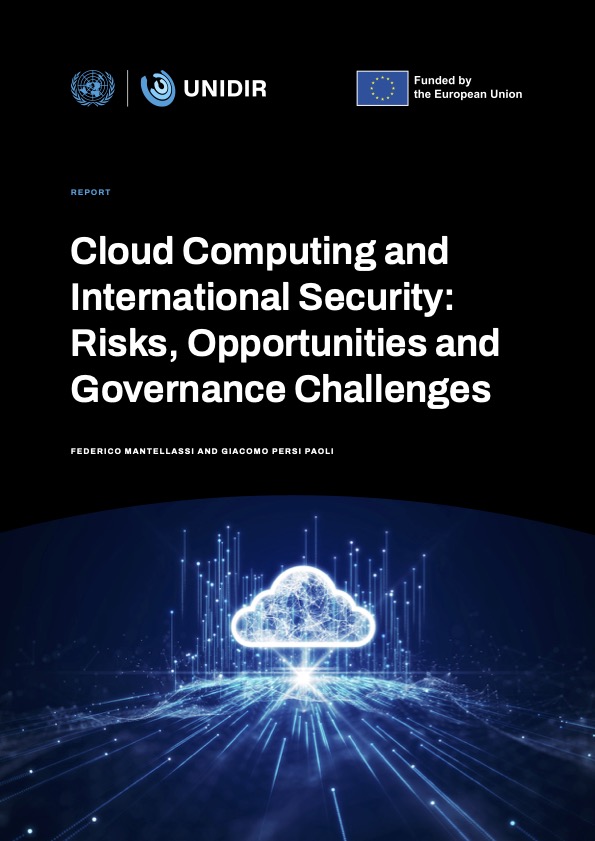Cloud computing has become a foundational element of the global digital economy, unlocking unprecedented levels of innovation and connectivity. While providing enormous benefits – from cost-efficiency, strengthened resilience, access to large computational resources, easier data-sharing and analytics – cloud computing also carries potential downsides and risks.
The centrality of cloud computing to modern life and the concentration of services among a few actors mean that failures – either accidental or as the result of adversarial action – can be severe, with cascading effects across industries, services and states. To understand the profound impacts of this critical enabling technology on international security, this report provides an overview of relevant use cases, benefits and risks of cloud computing, as well as its key governance challenges and implications for arms control. Structured into two parts – a technology primer and a governance primer – this report offers both technical insights and policy analysis.
Citation
Brief - Federico Mantellassi and Giacomo Persi Paoli, Cloud Computing Governance: a Research Brief (Geneva: UNIDIR, 2024).
Full report - Federico Mantellassi and Giacomo Persi Paoli, Cloud Computing and International Security: Risks, Opportunities and Governance Challenges (Geneva: UNIDIR, 2024).
